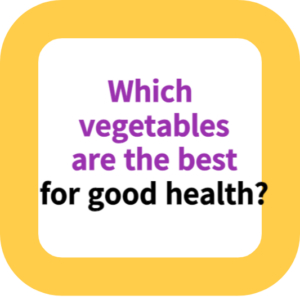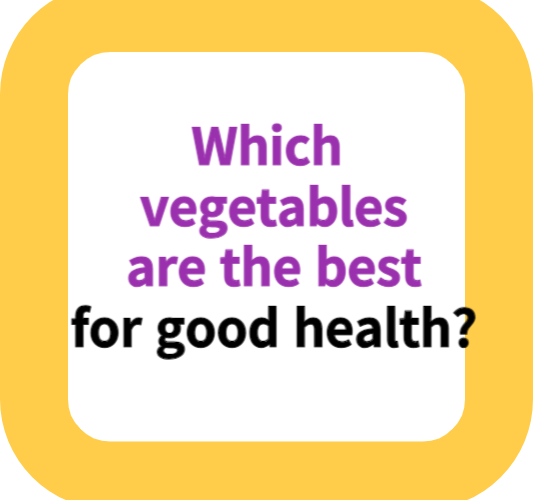Which vegetables are the best for good health?
In the realm of health and wellness, vegetables stand as unsung heroes, offering a kaleidoscope of nutrients essential for our well-being. Our blog, ‘Wholesome Greens,’ is dedicated to unraveling the secrets of these natural treasures. From the leafy spirals of spinach to the vibrant hues of bell peppers, each post is a journey into the heart of healthful eating.
We delve deep into the world of vegetables, unearthing the myriad ways they bolster our health. Our mission is simple yet profound: to guide you through the colorful world of vegetables, shedding light on their nutritional prowess and the remarkable benefits they bring to our tables and lives.
Every post on ‘Wholesome Greens’ is more than just a piece of writing; it’s a mosaic of insights, research, and practical tips centered around the nutritional powerhouses that are vegetables. Here, you’ll discover everything from the antioxidant-rich depths of kale and broccoli to the sweet, fiber-filled goodness of sweet potatoes.
We not only provide comprehensive information on the health benefits of each vegetable but also offer creative and delicious ways to incorporate them into your daily diet. Whether you’re a seasoned veggie lover or just starting your journey towards healthier eating, our blog is your go-to resource for embracing the diversity and richness of vegetables in your quest for a vibrant, healthful life.
Which vegetables are the best for your health?

Introduction: Embracing the Richness of Vegetables for Optimal Health
Vegetables are fundamental to a nutritious diet, offering a plethora of vitamins, minerals, and fibers that are essential for maintaining health and preventing diseases. This comprehensive guide delves into the world of vegetables, highlighting some of the most nutrient-rich options and their myriad health benefits.
Spinach: A Superfood for Overall Wellness
Spinach stands out as a leafy green powerhouse, brimming with essential nutrients. It is particularly high in vitamins A and K, folate, and iron, contributing to strong bones, healthy skin, and improved immune function.
The antioxidants lutein and zeaxanthin in spinach are especially beneficial for eye health, potentially warding off age-related issues. Its dietary fiber content also plays a crucial role in digestive health and blood sugar regulation.
Kale: The Nutrient-Dense Green
Kale, a member of the cruciferous vegetable family, is celebrated for its dense nutritional content. It is an excellent source of vitamins A, C, and K, essential for immune support, skin health, and blood clotting.
Kale is also rich in calcium and potassium, vital for bone health and blood pressure regulation. The presence of glucosinolates in kale has been linked to cancer prevention. Its high fiber content aids in digestion and helps maintain a feeling of fullness.
Broccoli: A Cruciferous Vegetable with Potent Health Benefits
Broccoli is renowned for its high vitamin C and K content, crucial for immune health and bone strength. It is also a good source of folate and dietary fiber. The presence of the compound sulforaphane in broccoli has been studied for its potential anti-cancer properties. Regular consumption of broccoli is associated with heart health benefits, such as lowering cholesterol levels.
Bell Peppers: Vibrant and Nutrient-Packed
Bell peppers, available in a variety of colors, are not only visually appealing but also nutritionally rich. They are an excellent source of vitamins C and A, which are key for immune function and skin health. Bell peppers are also loaded with antioxidants, which protect cells from damage and may reduce the risk of chronic diseases.
Sweet Potatoes: A Sweet Source of Vitamins and Fiber
Sweet potatoes are a delicious root vegetable high in vitamins A and C. Their natural sweetness is coupled with a rich fiber content, promoting digestive health and aiding in blood sugar regulation. They are a healthier alternative to white potatoes and can be incorporated into a variety of dishes.
Carrots: The Beta-Carotene Champion
Carrots are famous for their high beta-carotene content, which is converted into vitamin A in the body. This vitamin is essential for maintaining good vision, immune function, and skin health. Carrots also provide dietary fiber and antioxidants, contributing to overall health and wellness.
Brussels Sprouts: Small in Size, Big in Nutrients
Brussels sprouts, another member of the cruciferous family, offer a blend of vitamins C and K, folate, and fiber. They are known for their potential anti-inflammatory properties and their role in cancer prevention. These small but mighty vegetables pack a nutritional punch.
Cauliflower: A Versatile Vegetable with Numerous Benefits
Cauliflower is a versatile vegetable that can be used in a range of dishes as a low-carbohydrate alternative. It is rich in vitamins C and K and contains glucosinolates, which have been associated with potential health benefits, including cancer risk reduction.
Asparagus: Packed with Vitamins and Beneficial for Kidney Health
Asparagus is abundant in vitamins A, C, E, and K, as well as folate and fiber. It acts as a natural diuretic, promoting kidney health and reducing water retention. The antioxidants in asparagus contribute to overall well-being and may help protect against chronic diseases.
Tomatoes: A Culinary Vegetable with Fruit Origins
Though technically a fruit, tomatoes are often considered a vegetable due to their culinary uses. They are rich in vitamin C, potassium, and lycopene, an antioxidant linked to a reduced risk of certain cancers and heart disease.
Peas: High in Protein and Fiber
Peas are an excellent source of plant-based protein and dietary fiber. They also provide essential vitamins like A and C and contain phytonutrients with anti-inflammatory properties, supporting overall health.
Conclusion: The Diverse World of Vegetables and Their Health Benefits
The variety of vegetables available offers a spectrum of nutrients, flavors, and health benefits. Incorporating a wide range of vegetables, from leafy greens to colorful bell peppers and nutrient-rich root vegetables, ensures a comprehensive nutrient intake.
Embracing the diversity of vegetables not only enhances the quality of our diet but also contributes significantly to a healthy, vibrant lifestyle.
